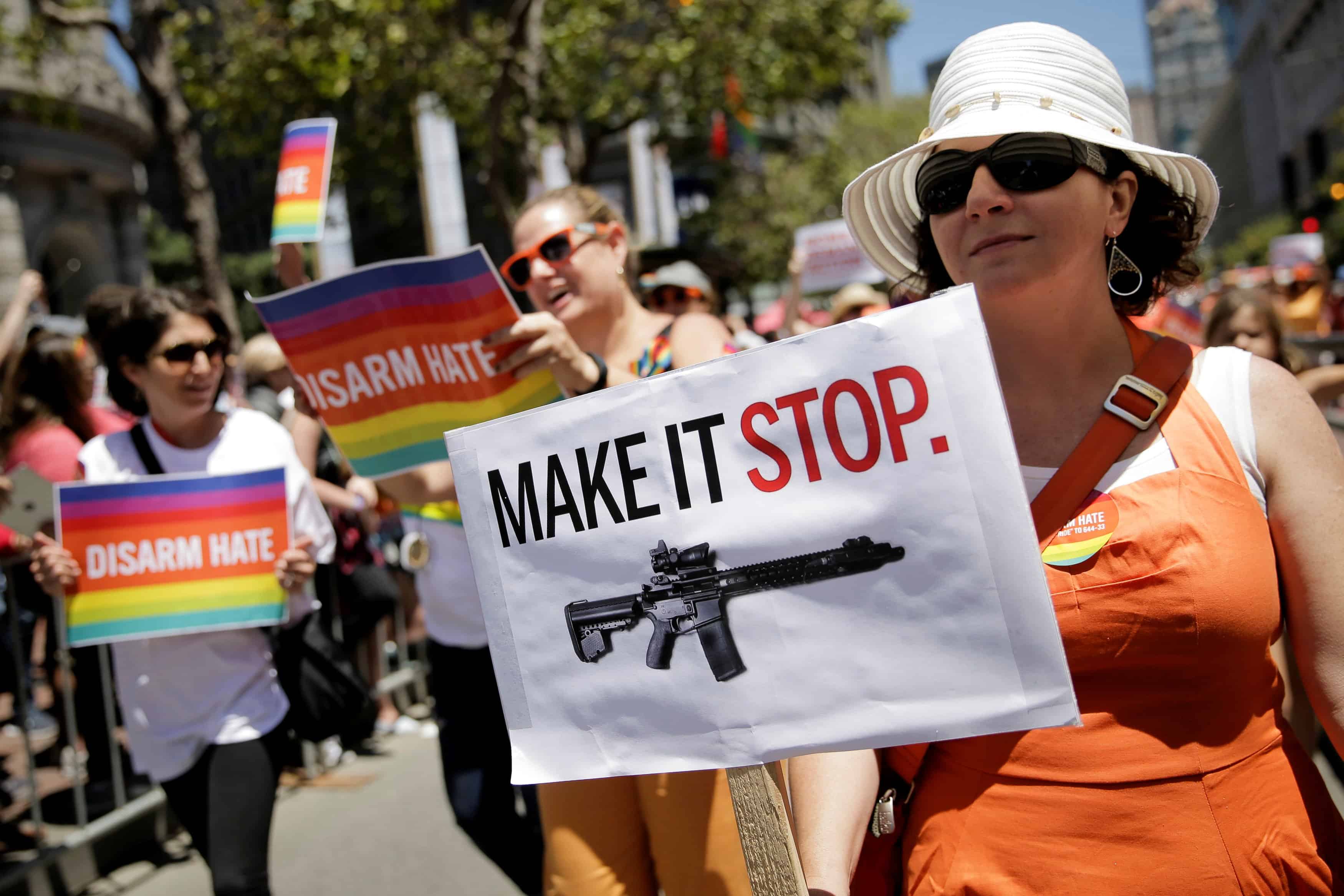Part I of a two-part series. See here for Part II on liberals and gun control.
****
The horrific shooting in Parkland, Florida has reminded us again of the need for an informed, value-based discussion on gun use and ownership in this country. Instead, we are witnessing the entrenchment of two politicized positions that oversimplify the problem of gun-violence in our nation.
In this article I focus on the puzzle of conservatives, turning to liberals in the next one. My argument about conservatives is simple: conservatives have largely removed themselves from the gun control debate, relegating themselves to the role of obstructive opposition. In order to truly protect the Second Amendment and the right to responsible gun ownership, however, conservatives must be willing to engage in the conversation surrounding gun ownership.
When Donald Trump, for example, recently proposed new gun regulations, he met immediate resistance from the NRA, who signalled a deep antipathy to further discussion.
This is tragic. Ostensibly organizations like the NRA have a great deal of knowledge about guns, and could provide a much-needed forum for discussion among gun owners. Instead of revealing themselves as resources, however, they have barricaded themselves with ignorance. It is hard to avoid the conclusion that groups like the NRA simply lack compassion and a desire to work together for the common good as fellow Americans.
Why are conservatives not more involved in the gun control debate? There are many reasons. But one of the most important is that they have moved to such an extreme individualistic take on the right to own a firearm that compromise has become impossible.
The Second Amendment of the U.S. Constitution protects the right to bear arms, although its exact meaning is debatable. Conservatives are therefore right to be protective of that amendment. But gun violence in our communities undermines the Second Amendment and the credibility of the claim that there is such a thing as responsible gun ownership. It is perplexing that instead of conservatives advocating for how guns can be purchased, owned and used responsibly, conservatives have instead adopted increasingly absolutist defenses to the Second Amendment. Here are at least three ways that their approach is absolutist.
First, many conservatives take a deeply individualistic approach to the Second Amendment. Conservatives interpret the Second Amendment such that it is an absolute individual right with no regard for the common good. But as Bishop Tobin notes:
Five years ago I wrote: “The right to own guns is not an absolute right. As a personal right it always has to be balanced with the legitimate rights of others and with protecting the common good. How many children must die until we agree on reasonable limits of firearms?”
— Thomas J. Tobin (@bishoptjt) February 19, 2018
Conservatives have a deep anti-individualist tradition: marriage, the family, churches, traditions and local communities are all bigger than individuals, and are all important sources of truth for conservatives. So why are conservatives so individualistic in their defense of limitless gun rights? When the American people raise concerns about gun violence, conservatives should not end the conversation with responses like “this is the price of freedom.” Responses such as these reflect an unsympathetic position that sees an individual’s right to keep and use firearms as superior to any concern for the community. Individual liberty can not be held over and above the common good and dignity of all human life. This is not a question about the Second Amendment, but rather a reminder to see the Second Amendment in its proper place, related to individual liberties oriented toward a common good.
Second, the conservative reading of the Second Amendment is often consumeristic. More and more, conservatives treat the Second Amendment as a guarantee of their desires as consumers, not as a protection of their rights as citizens. They thus reduce firearms to a product to be consumed, and more importantly they reduce themselves from citizens to consumers: concerned not with the common good, but with their personal pleasures/desires. This is largely the gun companies’ fault. To be a gun owner is to be a consumer. Gun companies control and manipulate the consumer mindset just like any other major corporation. Firearms and firearm accessories are big business, and such business is fueled by the need for more consumers. Fifteen years ago few people even knew what an AR-15 was. Now it is one of the most recognized and purchased weapons. Consumers do not need to buy more weapons just because gun manufacturers tell them to do so. They do not need to be controlled or manipulated by them, as when they are persuaded that they need AR-15s. Even though the Second Amendment guarantees the right to own a gun, do we not have a responsibility to promote a more reflective culture of gun ownership?
Indeed, one of the greatest illustrations of this consumeristic approach is the well-documented spikes in guns sales after school shootings. Amidst all the fears and questions raised by such violence, for many gun owners the main concern was maintaining access to their supply of guns.
There is third the issue of idolatry.
Guns will not save us. Some have suggested that the solution to the gun problem is more guns, as with the proposal to arm school teachers. This idea reveals that, for many conservatives, guns are a kind of idol. Idolatry of this kind discloses a disordered preference for the weapons themselves over that of the values that justify their existence in the first place. While a responsible gun ownership culture exists throughout this country, a push for the proliferation of firearms is counterproductive and reckless. If conservatives are going to be taken seriously in a discussion on gun violence, they need to cultivate a healthy self-criticism about the tendency to idolize firearms. When guns are elevated to a position out of all proportion to their importance in a culture, then that culture becomes unhealthy and disordered.
This individualistic, consumeristic and idolatrous approach to gun ownership and the Second Amendment keeps conservatives from contributing meaningfully to debates about gun violence, and inclines them to reject the possibility for compromise and consensus.
Were conservatives to engage these debates, they would undoubtedly turn toward questions of culture. Perhaps the solutions we need are not merely new laws, but rather the promotion of the values we hope to live up to as a community. And conservatives can contribute to that endeavor by taking a serious look at the kinds of communities they want to live in, and the values that they want to direct their actions toward.
More cynically, the GOP needs to wake up to new realities. Republicans might think they are winning electorally by standing up for gun rights, but this is a losing strategy in the long run.
If we hope for a public conversation that will actually bring about positive change, then we have to be willing to have a more robust, informed conversation that recognizes all the factors involved, and to humbly recognize the limitations of legislators and legislation on this issue.


